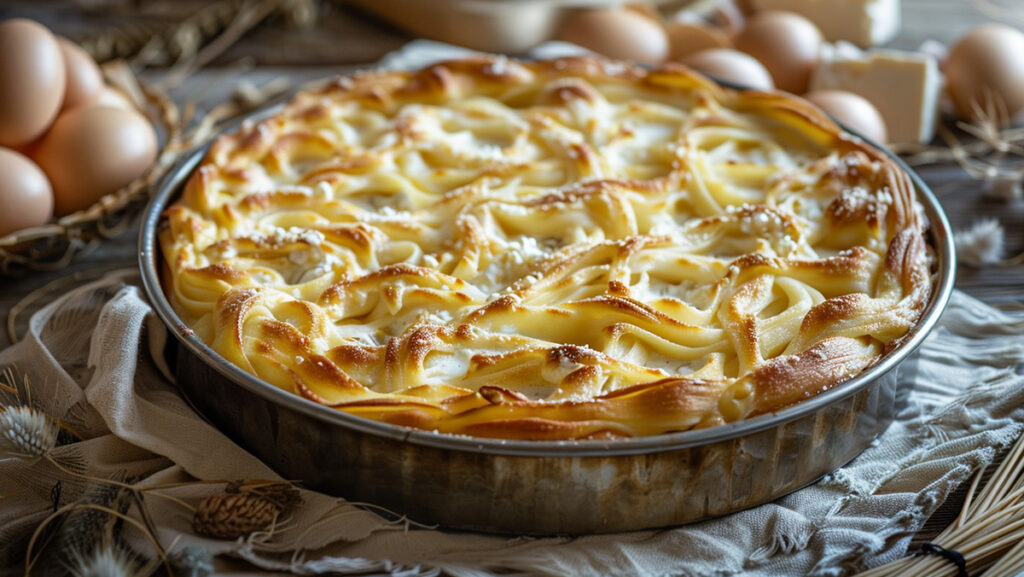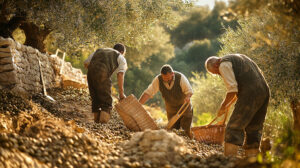
Albanian Pastiçe: Easy baked pasta recipe
Discover Albanian pastiçe: bucatini with feta and eggs baked into a golden pie—simple, nourishing and perfect for hectic days.
Craving baked pasta but want something different from lasagne or mac & cheese? Try Albanian pastiçe (pronounced pah‑STEE‑cheh). This easy pasta recipe combines al‑dente spaghetti, creamy feta and a light egg custard that bakes into a golden, savoury pie.

Pastiçe is a traditional Albanian baked pasta that emerged in times of scarcity, when households turned pantry staples into a nourishing meal. Trade with Italy and Greece introduced pasta and feta to Albania, and they became staples in the dish.
The method is simple yet ingenious: al‑dente spaghetti (preferably hollow bucatini) is mixed with eggs, milk and generous cubes of feta, then baked until golden on top. The sturdy casserole is cut into wedge‑shaped slices and served hot or at room temperature. It recalls Greek pastítsio but retains a distinctly Albanian character.
In Albania cooks often choose a thick, hollow spaghetti: bucatini, also known as perciatelli. The hollow core soaks up sauce, giving every bite perfect flavour. If you can’t find bucatini, regular spaghetti or penne works too.

Creamy, golden‑brown casserole of bucatini, feta and eggs: an Albanian classic you slide into the oven in one dish and enjoy just as much the next day.
Cuisine: Albanian
Course: Main
Keywords: baked pasta, Albanian pastiçe, bucatini, feta, easy
Although Albanian Pastiçe spends 45 minutes in the oven, it assembles quickly with minimal ingredients and reheats beautifully—ideal for busy weeknights.

Discover Albanian pastiçe: bucatini with feta and eggs baked into a golden pie—simple, nourishing and perfect for hectic days.

The flag of Albania is more than just red and black. This article explores the deeper meaning behind its national symbols – from the double-headed eagle to the traditional ‘Shqiponja’ hand gesture, the unique Albanian language, and the country’s rich cultural heritage. A story of pride, identity, and history captured in one powerful symbol.

This homemade chili oil with Extra Virgin olive oil is a flavor bomb that’s also great for your health. Easy to make and incredibly versatile.

Albania is home to thousands of medicinal plants. Discover how traditional herbal wisdom not only impacts lives, but also shapes a unique export industry.

Despite an increase in risk factors such as an unhealthy diet and less physical activity, cardiovascular mortality in Spain remains surprisingly low. What explains this mysterious ‘Spanish Paradox’? Discover how a key element of the Mediterranean diet plays a crucial role.

The Albanian olive harvest is severely impacted by a labor shortage, leading to a significant decline in olive oil production and exports. In the first nine months of 2024, exports dropped by 60% compared to the same period in 2023. This not only poses challenges for the domestic market but also hinders Albania’s position as an emerging olive oil producer.